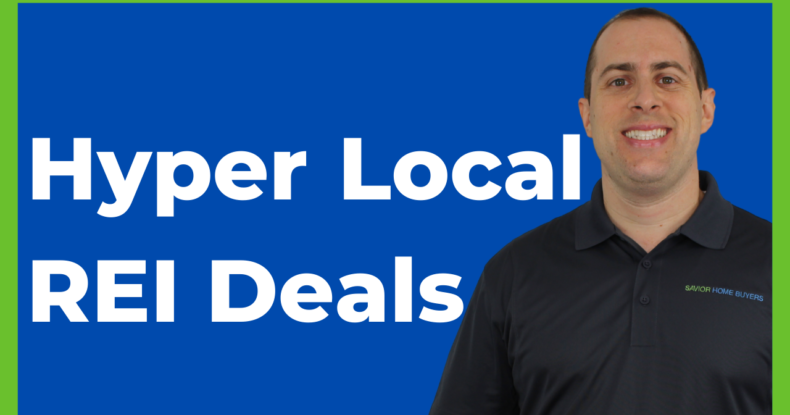For some investors it can be a badge of honor to cover a wide geographic area in terms of deals. I know I used to be proud of the fact that I was able to take down deals across the entire Dallas-Fort Worth metro area. Over time, however, I realized that perhaps this was not the best or most effective approach for me and my business.
DFW is a huge, sprawling city which meant I was spending an incredible amount of time in my car instead performing money making activities. Sure, I was able to multi-task a little bit by listening to a podcast or audiobook to learn new ideas or strategies, but I was not being as efficient as I could have been.
Eventually I was able to start building out my office and hire an acquisitions team that could handle driving to and from appointments, looking for houses. This helped me personally become more productive, but now my team was losing time driving to every corner of the city.
The other major problem with this strategy was that I never became truly familiar with any of the neighborhoods. People want to work with someone who knows their area, down to the zip code. While it was true that I was a local investor, from the same metro area, I was probably overstating my familiarity and ability to take down deals in certain neighborhoods.
I am just one investor. I have a small team helping me, but I am not running a 100+ person office. Many of my students run a similar operation. Some are solopreneurs, some have an office with one or two people that help them buy. Many are still doing the buying personally, even with support staff. How can a smaller operation compete with Wall Street and iBuyers?
We have gotten a lot of horsepower from going hyperlocal with our deals. How did we decide to pursue this strategy? We tracked our deals and made some data-driven decisions.
It is critical to really have a pulse on what is going on with the houses that you are buying. For example, I am now exclusively buying in only these three small suburban townships, and I know exactly what to expect for each deal. The houses are all older homes, the motivated sellers are similar in their goals and expectations, and the price range is consistent. The deals practically close themselves at this point; we have the systems and strategies in place to create win-win deals quickly and painlessly. This leads to satisfied sellers and positive reviews and referrals for us.
The takeaway here is that I get all the deals I need from a much smaller geographical area. I do not need to close hundreds of deals, combing through hundreds of thousands of homes in a large metro area. I am dialed into my niche, which is Seniors. These areas, these suburban towns, are full of Seniors. To make the decision on where to focus, we ran the numbers. We did the math and there are 24,000 Senior homeowners in these areas. I only need two or three a month to say yes to me. This has become an increasingly easy goal to meet because I am part of their community. I am speaking at their Senior centers. I am giving my book to local influencers: the mayor, local restaurant owners, medical offices.
Better yet, since my team and I are spending our time exclusively in these areas, it is easier for us to spot changes that signify a homeowner might be ready to sell.
Narrowing your market can feel like a scary, constricting move. It is true that now I have fewer overall houses to choose from, but my conversion rate is much higher. Why? Because the other investors in these cities cannot compete with me. I live in this area. Everyone here knows who I am. People work with folks that they know, like, and trust.
I put my face on all the marketing and motivated sellers know that I am local and that this is not just some random company that is going to try to bamboozle them. Leaders in the community know me as well and refer their network to me. I have become the go-to person for Seniors in need of help with their home in my area. No one else even stands a chance.
Maybe you do not want to work where you live. That is fine, you can establish yourself as the authority and expert somewhere in your market that is a bit removed from your home. If you are out in the community, if they know you at city hall or in the business district, if local homeowners see you on the street and say to themselves “Oh, that’s the person to call if you need to sell your house,” then you can hit your numbers without needless competition. Decide on your niche, decide on your local area, and establish relationships. The deals will follow.
